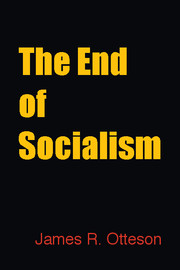Book contents
- Frontmatter
- Dedication
- Contents
- Preface
- Acknowledgments
- 1 What Socialism and Capitalism Are
- Part I Socialism’s Problems in Practice
- 2 Knowledge and Planning
- 3 Knowledge: Value, Equality, and Experts
- 4 Knowledge and Community
- 5 The Day Two Problem
- Part II Socialism’s Problems in Principle
- Conclusion
- Bibliography
- Index
4 - Knowledge and Community
Published online by Cambridge University Press: 05 October 2014
- Frontmatter
- Dedication
- Contents
- Preface
- Acknowledgments
- 1 What Socialism and Capitalism Are
- Part I Socialism’s Problems in Practice
- 2 Knowledge and Planning
- 3 Knowledge: Value, Equality, and Experts
- 4 Knowledge and Community
- 5 The Day Two Problem
- Part II Socialism’s Problems in Principle
- Conclusion
- Bibliography
- Index
Summary
Introduction
One reason G. A. Cohen endorses progressive taxation, even aggressively progressive taxation, in the service of socialist equality is because he believes that great inequality imperils genuine community. Cohen asks us to imagine a wealthy and privileged person, and a poor and unprivileged person. Both of them enjoy the “negative” freedom accorded by Adam Smithian “justice,” which Smith defined as comprising only three things: integrity of one’s person, integrity of one’s property, and integrity of one’s voluntary promises and contracts. Because the Smithian government’s primary responsibility is to protect this conception of justice, its main duties are hence the protection of life, property, and contract. Smith called these duties “negative” because, as he vividly put it, one could “fulfil all the rules of justice by sitting still and doing nothing” (TMS, 82). Justice for Smith thus contrasted with other, “positive” virtues, which required taking positive action to fulfill, and included things like friendship, loyalty, charity, hospitality—all the virtues that fall under Smith’s general heading of “beneficence.” Suppose, then, both Cohen’s wealthy person and his poor person are enjoying protection of this minimalist Smithian justice, and hence the Smithian state owes neither of them anything more. Yet the vastly different experiences each of them would have had over the courses of their lifetimes would make them, Cohen argues, vastly different people. They would have different home lives, different schooling and education, different vocations and job training; they would likely not eat in the same restaurants, take their children to the same parks, shop in the same stores, read the same books, watch the same television shows, vacation in the same places. They would, in short, live in virtually separate worlds, even if physically proximate: if they happened to ride the same bus one day, they would hardly recognize each other as fellow citizens and would scarcely have anything even to talk about. Cohen concludes that they can therefore share no real community (2009: 36).
- Type
- Chapter
- Information
- The End of Socialism , pp. 72 - 78Publisher: Cambridge University PressPrint publication year: 2014



